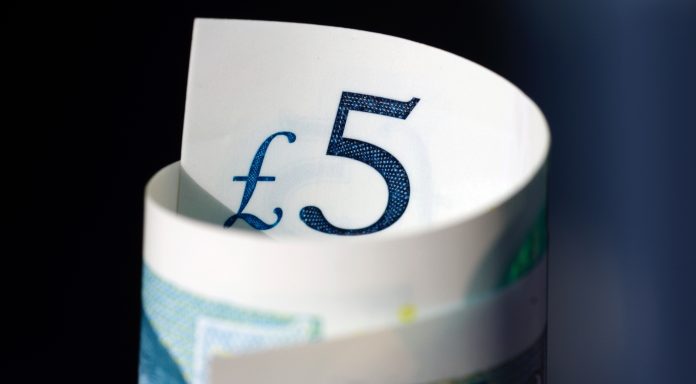The pound advanced versus the euro on Wednesday. The pound euro exchange rate closed 0.15% higher at €1.1610 after the EU agreed to extend Brexit until October.
| What do these figures mean? |
|---|
|
When measuring the value of a pair of currencies, one set equals 1 unit and the other shows the current equivalent. As the market moves, the amount will vary from minute to minute. For example, it could be written: 1 GBP = 1.13990 EUR Here, £1 is equivalent to approximately €1.14. This specifically measures the pound’s worth against the euro. If the euro amount increases in this pairing, it’s positive for the pound. Or, if you were looking at it the other way around: 1 EUR = 0.87271 GBP In this example, €1 is equivalent to approximately £0.87. This measures the euro’s worth versus the British pound. If the sterling number gets larger, it’s good news for the euro. |
Brexit was the central focus as the emergency EU Brexit summit took place. Theresa May formally requested an extension to Brexit until June 30. The EU agreed to extend Brexit for 6 months until October 31st, with a break clause to please French President Macron. Macron took a particularly hard-line against the UK.
The fact that the UK will not crash out of the EU on Friday without a deal pleased pound traders.
| Why is a “soft” Brexit better for sterling than a “hard” Brexit? |
|---|
| A soft Brexit implies anything less than UK’s complete withdrawal from the EU. For example, it could mean the UK retains some form of membership to the European Union single market in exchange for some free movement of people, i.e. immigration. This is considered more positive than a “hard” Brexit, which is a full severance from the EU. The reason “soft” is considered more pound-friendly is because the economic impact would be lower. If there is less negative impact on the economy, foreign investors will continue to invest in the UK. As investment requires local currency, this increased demand for the pound then boosts its value. |
A six month extension could be enough time for a second referendum. More likely it could also be enough time to oust Theresa May as Prime Minister.
Whilst Brexit dominated headlines, U.K. economic data was slightly more promising than it has been recently. U.K. GDP data showed that the UK economy grew by 0.3% in the 3 months to February. This was stronger growth than the 0.2% that analysts had been forecasting. On a monthly basis the economy grew 0.2%, better than the 0% stagnation that predicted by analysts. Whilst this is better than forecast, looking at the bigger picture it is still sluggishly slow growth.
Cautious ECB Weighed On Euro
The euro was broadly flat in the previous session, despite dovish comments from European Central Bank President Mario Draghi. As analysts expected the ECB kept monetary policy unchanged. However, Draghi was keen to point out that risks remain tilted to the downside, as slower global growth continues to impact on the eurozone economy. Draghi made it clear that the central bank was in no rush to raise interest rates. As a result, the euro came under pressure, keeping it in a similar state to the pound.
| Why do raised interest rates boost a currency’s value? |
|---|
| Interest rates are key to understanding exchange rate movements. Those who have large sums of money to invest want the highest return on their investments. Higher interest rate environments tend to offer higher yields. So, if the interest rate or at least the interest rate expectation of a country is relatively higher compared to another, then it attracts more foreign capital investment. Large corporations and investors need local currency to invest. More local currency used then boosts the demand of that currency, pushing the value higher. |
Today attention will swing back to the eurozone economic calendar. German inflation figures could send the euro lower. Analysts predict that German inflation will remain steady at a lacklustre 1.3% year on year. Weak inflation will further support the ECB’s decision to keep rates firmly on hold.
This publication is provided for general information purposes only and is not intended to cover every aspect of the topics with which it deals. It is not intended to amount to advice on which you should rely. You must obtain professional or specialist advice before taking, or refraining from, any action on the basis of the content in this publication. The information in this publication does not constitute legal, tax or other professional advice from TransferWise Inc., Currency Live or its affiliates. Prior results do not guarantee a similar outcome. We make no representations, warranties or guarantees, whether express or implied, that the content in the publication is accurate, complete or up to date. Consult our risk warning page for more details.
This article was initially published on TransferWise.com from the same author. The content at Currency Live is the sole opinion of the authors and in no way reflects the views of TransferWise Inc.





